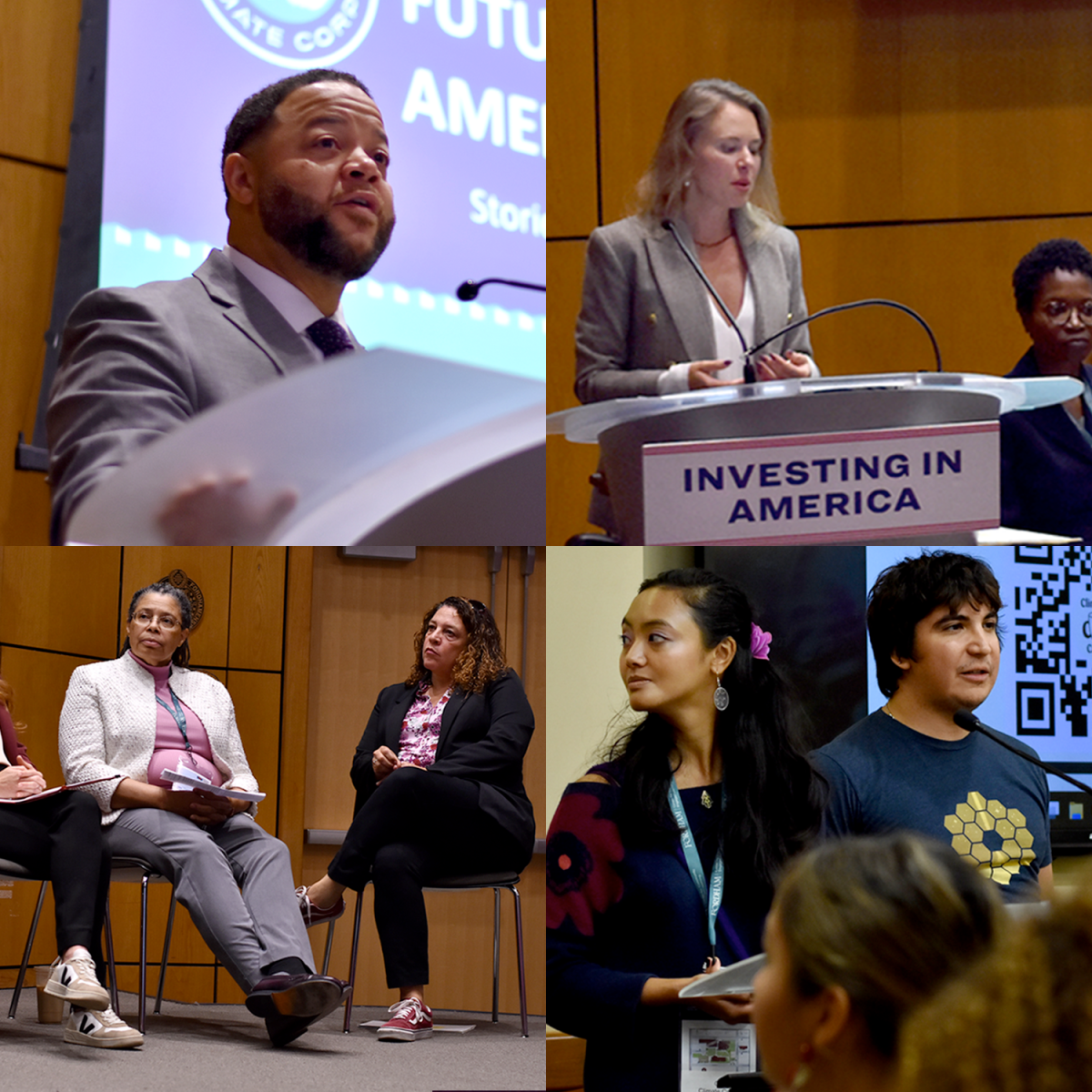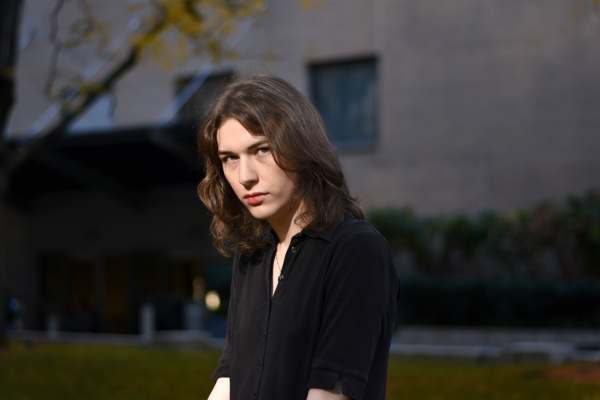Youth environmental activists and Environmental Protection Agency (EPA) regional administrators discussed how to involve young people in the environmental justice movement at a Climate Week summit on Sept. 24 at Fordham’s Lincoln Center campus.
The summit included a workshop by the Climate Cafe NYC, a volunteer project hosting discussions and workshops about climate change, and an information session on the American Climate Corps (ACC), an initiative launched by the Biden Administration during last year’s climate week.
AmeriCorps is a U.S. federal program that engages volunteers in public service to address community needs. Michael Smith, CEO of AmeriCorps, introduced the ACC as a national initiative to engage young people in climate resilience and environmental projects. Smith opened his speech at the summit with a statement directed at Generation Z.
Fordham will distribute $40 million of the grant to partner organizations to build local environmental resilience and mitigate the effects of climate change
“Thank you for being saddled with one of the worst crises any generation has ever been saddled with, and instead of turning inward, turning outward and saying, ‘you know what, we’re going to change the game,’” Smith said.
Lisa Garcia, the Region 2 Administrator at the EPA encompassing New Jersey, New York, Puerto Rico and the U.S. Virgin Islands, said she intends to center opportunities and solutions in conversations on the climate to prevent potential despair.
“The science kind of leads us to this place of gloom and doom, but there’s a whole suite of solutions and people working towards addressing this,” Garcia said.
Appointed in 2009, Garcia had roles in emergency response during environmental crises such as Hurricane Sandy and the Deepwater Horizon oil spill.
Julie Gafney, executive director for CCEL, attributed Fordham’s community orientation in New York City as why the university hosted the summit.
In late 2023, the EPA awarded Fordham a $50 million grant to partner with and allocate funds to community organizations in Region 2 for environmental justice projects. Fordham will distribute $40 million of the grant to partner organizations to build local environmental resilience and mitigate the effects of climate change. The remaining $10 million will be used by Fordham to develop partnerships and organize its grantmaking program.
The Center for Community Engaged Learning (CCEL) has a major role in building partnerships for the grantmaker program. Julie Gafney, executive director for CCEL, attributed Fordham’s community orientation in New York City as why the university hosted the summit.
“We have space for community engagement, for community organizations, for policymakers, to host important conversations like this one,” Gafney said. “And what better place to do it than a university?”
In the morning, volunteers from Climate Cafe hosted a workshop where attendees discussed how climate change weighed on them.
Climate anxiety stems from an awareness of the impacts of climate change and a struggle to reconcile personal responsibility with global, systemic issues.
Climate Cafe provides a space for people to share and process their emotions about climate change in a supportive, non-judgmental setting. These gatherings aim to build community resilience and offer a chance to connect with others experiencing similar feelings. They also encourage participants to explore local activism opportunities and sustainable practices.
Gianna Lum, co-founder of Climate Cafe, said she wants to unite young people to overcome climate anxiety.
“We want to have people realize that they’re not alone,” Lum said.
Climate anxiety stems from an awareness of the impacts of climate change and a struggle to reconcile personal responsibility with global, systemic issues. This feeling arises as people continue to confront the scale of environmental degradation through news, social media and scientific studies.
Lum said that “crisis” is the most accurate language to describe the scale of climate change.
Some participants at the workshop discussed the most effective ways to communicate about climate change. Mauricio González, a marine biology research teacher at the New York Harbor School, expressed concern that the repeated use of “climate crisis” causes emotional distress.
“I prefer the phrase responsible adaptation to climate change,” González said.
Lum said that “crisis” is the most accurate language to describe the scale of climate change.
“People first called it ‘climate change’ because it was supposed to be less threatening,” Lum said. “But it is a crisis.”
Gafney chose a strategic approach, emphasizing the need to gain the support of different communities.
“In order to bring the entire nation together to actually address climate and environmental issues, we’re going to have to talk about this in lots of different ways,” Gafney said.
After the Climate Cafe workshop gave space for attendees to share their experience of climate change, the summit moved to discuss environmental volunteer opportunities at AmeriCorps. Mary Mears, EPA Region 2 public affairs director, said the summit’s morning session was intended to channel students’ environmental concerns into productive action.
“The logical next step after talking with Climate Cafe and talking about climate anxiety is how to get people into careers that are really going to make a difference in the world of climate change,” Mears said.
“The people that are bearing the brunt of the climate crisis are the people that we have already failed over and over again.” Michael Smith, CEO of AmeriCorps
Mears pointed to the ACC as a way for students to take action against climate change. The ACC was launched in 2023 to train young people for careers in clean energy and environmental resilience. On Sept. 25 the ACC announced that it has put over 15,000 people to work in climate-related jobs since its conception.
In his speech introducing the ACC, Smith associated the need for climate justice with other historic inequities.
“The people that are bearing the brunt of the climate crisis are the people that we have already failed over and over again,” Smith said.
Fordham’s structure as an academic institution might shape its approach to the grantmaker role. Garcia said she hopes that Fordham will incorporate the voices of environmental community organizations into their pedagogy.
“Hopefully it’ll be that they can share some of the learning with the students and get students more involved in being in the environmental movement,” Garcia said. “It’d be really great to marry that as Fordham University builds relationships with communities to then replicate that voice within the university setting, with the students, with the faculty, to figure out ways that the university can be even more supportive.”
Garcia said that all of the EPA’s initiatives work towards the holistic goal of environmental justice.
“You have our policy work focused in on climate justice leading, our investments with the priority of investing in communities, and our regulatory work,” Garcia said. “It’s across the board.”


